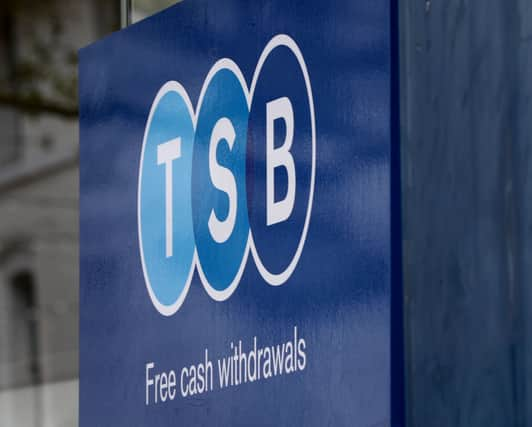TSB warns impersonation fraud has surged by 300% - signs to look out for


Impersonation fraud is an attack in which a criminal impersonates a company, business, organisation or individual as a key component, and reported cases have soared by 300% since 2019.
Retail banking company, TSB, has warned people to be on the alert for scammers as cases of impersonation fraud soar.
Advertisement
Hide AdAdvertisement
Hide AdTSB said the average victim of impersonation fraud loses £4,000, and household names like Royal Mail, Amazon and BT are used to lure unsuspecting people into sending money to scammers.
Paul Davis, director of fraud prevention at the bank, said: “Households are bombarded with scam calls, texts and emails every day.
“We’re urging them to remain suspicious of any unsolicited contact, to avoid falling victim to fraud at a time when the impact would be hardest felt.”
What are the signs to look out for?
TSB said that in 2021 more than half of customers’ transactions to fraudsters by value was due to impersonation fraud.
Advertisement
Hide AdThe retail bank discovered that in impersonation fraud, over half of the money lost was from criminals pretending to be from a bank, claiming their victim’s account was under attack and money needs to be transferred to a “safe account”.
Advertisement
Hide AdAuthority fraud, when imposters claim to be from official organisations like the police, HMRC, the National Crime Agency or the NHS, create 13% of the total value lost.
Fraudsters also pretend to offer broadband or software support, as tech support and phone provider fraud made up 9% of losses.
Company names of BT, Virgin and Sky are frequently used.
Be wary of suspicious messages from delivery companies as 8% of the total loss came from fraudsters pretending to be from such as Royal Mail, Hermes and DPD and 7% of the loss was from fraudsters pretending to be from Amazon.
Advertisement
Hide AdTSB is also warning people of emotive texts or email requests for financial help, as fraudsters are posing as a relative or friends.
On average, the bank said, family and friend fraud leads to more than £1,200 lost per case.
What can you do?
Advertisement
Hide AdMr Davis said people should be suspicious of any out-of-the-blue contact, keep their guard up and not let themselves be easily convinced.
Urgency is a key factor in fraud, so people should take their time. The best way to deal with anything suspicious would be to hang up or delete the message.
Advertisement
Hide AdBank fraud departments will never ask you to make a transfer, and by dialling 159 people can find out if it really is their bank calling.
What is being done to reduce impersonation fraud?
New industry figures from Action Fraud showed there had been more than £2 billion worth of reported fraud in less than a year.
On Wednesday TSB launched its Tackling Fraud Together report and will be in the UK Parliament to set out the steps it said are needed to stop fraud.
Advertisement
Hide AdPhil Andrew, chief executive of StepChange, a debt charity that contributed to the report, said: “In tough times fraud and financial difficulty go hand in hand.
Advertisement
Hide Ad“The pandemic has left many households with little or no ability to cope with financial shocks and, as cost-of-living increases start to bite, it’s vital consumers are protected from those seeking to exploit financial and other vulnerabilities.”